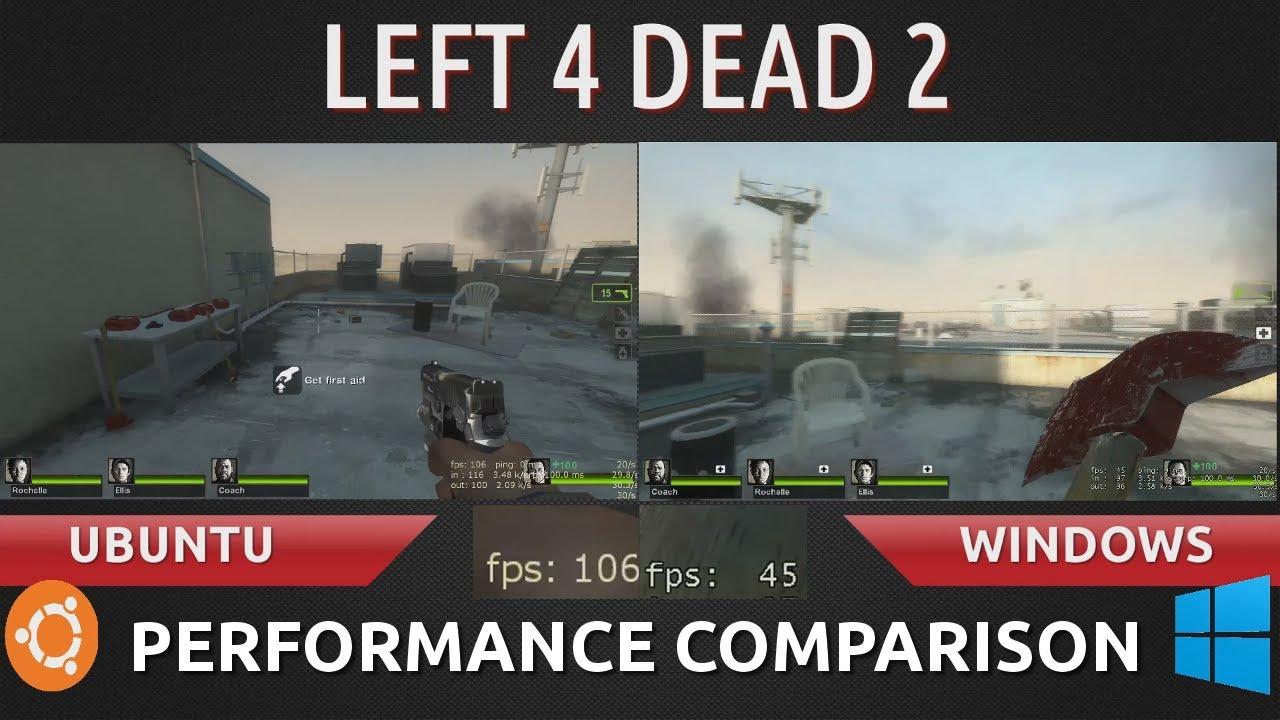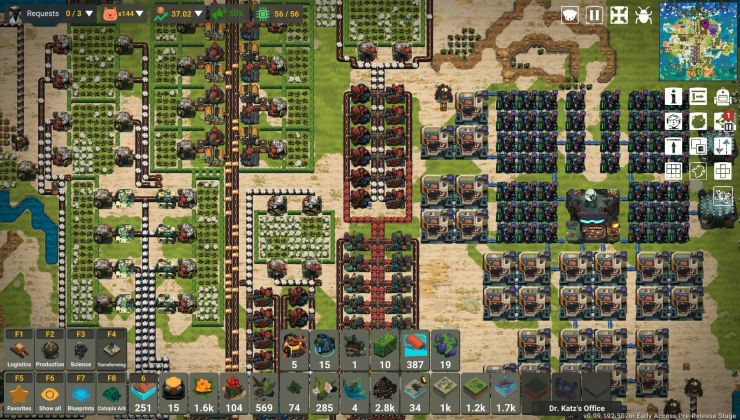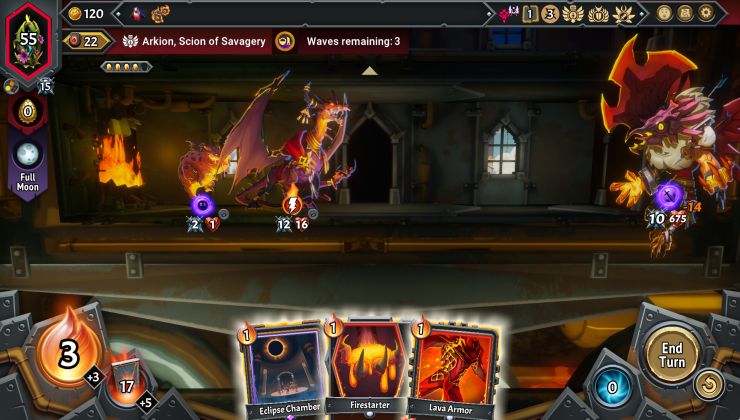Hey there folks! Today I bring you a smaller but new test I did recently with my system.
I wanted to see what the actual performance difference was when running Left 4 Dead 2 natively in Ubuntu 13.04 versus running it in Windows 8. To visually gauge this difference, I took a look at the frames per-second and recorded the outcome in the following video:

Needless to say, I was actually shocked when watching the videos and seeing the difference myself. This reassures me that Native gaming is a must over Wine gaming (although this is just my opinion).
Some may point out that Fraps is too heavy of a screen recorder to get an accurate reading of fps, however I tried other alternatives available to me such as XFire and MSI Afterburner and Fraps hands down is the only one giving Windows a fighting chance. [More info on this in the description of the video page].
Remember, that Windows is usually heralded as having better support and drivers compared to Linux in general. Taking this into consideration, both OS's were put under the duress of running L4D2 at maxed out settings while simultaneously performing the screen recording as well. I ran the Windows test multiple times to ensure similar results, and I ran the Ubuntu test twice with the same results.
Please pause the video at 0:08 to view the settings at which I played L4D2 (the settings are same across both OSs).
Ending notes:
I am only human, so it is very likely there were mistakes or things I may have overlooked. Please feel free to correct me, offer me guidance or even post your own results! The more tests we have, the greater the sample we can make judgement from.
A thank you to the kind folks who guided me on ways to better my future test videos based on my older videos, I hope to do a few more of these if people enjoy watching them.
Please note that the experience may be completely different for AMD graphics users and Intel graphics users. I do not claim that this will be what everyone experiences whether now, in the past or in the future. It is just what I have so far consistently experienced.
I wanted to see what the actual performance difference was when running Left 4 Dead 2 natively in Ubuntu 13.04 versus running it in Windows 8. To visually gauge this difference, I took a look at the frames per-second and recorded the outcome in the following video:

YouTube videos require cookies, you must accept their cookies to view. View cookie preferences.
Direct Link
Direct Link
Needless to say, I was actually shocked when watching the videos and seeing the difference myself. This reassures me that Native gaming is a must over Wine gaming (although this is just my opinion).
Some may point out that Fraps is too heavy of a screen recorder to get an accurate reading of fps, however I tried other alternatives available to me such as XFire and MSI Afterburner and Fraps hands down is the only one giving Windows a fighting chance. [More info on this in the description of the video page].
Remember, that Windows is usually heralded as having better support and drivers compared to Linux in general. Taking this into consideration, both OS's were put under the duress of running L4D2 at maxed out settings while simultaneously performing the screen recording as well. I ran the Windows test multiple times to ensure similar results, and I ran the Ubuntu test twice with the same results.
Please pause the video at 0:08 to view the settings at which I played L4D2 (the settings are same across both OSs).
Ending notes:
I am only human, so it is very likely there were mistakes or things I may have overlooked. Please feel free to correct me, offer me guidance or even post your own results! The more tests we have, the greater the sample we can make judgement from.
A thank you to the kind folks who guided me on ways to better my future test videos based on my older videos, I hope to do a few more of these if people enjoy watching them.
Please note that the experience may be completely different for AMD graphics users and Intel graphics users. I do not claim that this will be what everyone experiences whether now, in the past or in the future. It is just what I have so far consistently experienced.
Some you may have missed, popular articles from the last month:
All posts need to follow our rules. For users logged in: please hit the Report Flag icon on any post that breaks the rules or contains illegal / harmful content. Guest readers can email us for any issues.




 How to set, change and reset your SteamOS / Steam Deck desktop sudo password
How to set, change and reset your SteamOS / Steam Deck desktop sudo password How to set up Decky Loader on Steam Deck / SteamOS for easy plugins
How to set up Decky Loader on Steam Deck / SteamOS for easy plugins
It's also weird that the FPS are higher in Linux when that happens. So it seems FPS isn't everything in the Linux performance equation.
Oh well what do I expect from crap ATI linux drivers.
Sadly, I know what you're going through. I previously used an HD4850 then a HD6850, and the AMD drivers in Linux just kept getting worse. After having used AMD graphics for so long in my family, I then jumped to Nvidia sometime in January I think. The drivers really are better on the Nvidia side so far.
This is because V-Sync is disabled. I did this on purpose, so we can see the fps fluctuate outside of 60Hz (my screen's maximum fps threshold). My eyes in real life cannot see the extra frames above 60, but the screen recorder can. So it picks up the major spikes in the frames per-second in both tests. On the windows side it looks choppy because it is less than 60 fps. On the Ubuntu side, it looks choppy because the frames jump from a 50-60 to a 100+ threshold so the changes are frequent and large.
My screen recording can only be smooth if I record with V-sync enabled, as that forces the game to stay within 60 fps and reduce screen tearing or loss of frames.
I've never been too good at setting up the latest open source drivers, usually mess up (tried it with some Intel laptops and an AMD laptop). Maybe someone more knowledgeable could offer us some footage :)
Based on that, you would naturally suspect that any graphics card API conversion issues to be on the Linux side of things, not Windows!
Also, the open drivers have played pretty much every game (Killing Floor, Mark of the Ninja, TF2, LFD2, Awesomenauts) I have thrown at them without any problems with the exception of Oil Rush which requires OpenGL 3.2 (open drivers are at OpenGL 3.1 at the moment).
So, I find your results to be inconclusive.
Just compare GTA 4 vs GTA5 on PS3 and you got your answer.
Do you have any recommendations? Do take note that where I live, it is likely I won't have access to a lot of these devices. I may have to order them from overseas, if that's even possible. But if they are in store, I'd definitely like to get one.
I agree with you that using screen recorders is definitely not the best way to estimate performance differences, but it was definitely surprising to me to see that there was such a difference so I thought I would share. As previously mentioned, it is just my experience :)
Either way, Windows 8 stinks.
1. Did you try FFMPEG on either side? FFMPEG can do as a screen/audio recorder on both OS's with some advanced knowledge, and since it's command line, it'll perform better.
2. Turn the power regulation OFF on windows.
It's not easy to use, and that was back when I was willing to go through lots of documentation to try and make it work. I don't believe I have the time to put myself into that position for now (I'm doing these test videos while going through my final exams for the semester).
Talking about Power regulation, are we talking power plans? I had my power plan set to High Performance in Windows during these tests. Or is this something else? If it is, then please teach me about it.
That's why you record first pass lossless and convert it later.
> Talking about Power regulation, are we talking power plans? I had my power plan set to High Performance in Windows during these tests. Or is this something else? If it is, then please teach me about it.
It's one of windows many fuckups. You have to completely disable power management otherwise it will seesaw your graphics card which will molest your performance. It also does that with CPU, although since intel CPU's generally come with 3-8 clock rates (depending if it's a mobile or a desktop and the model), that isn't affected as badly.